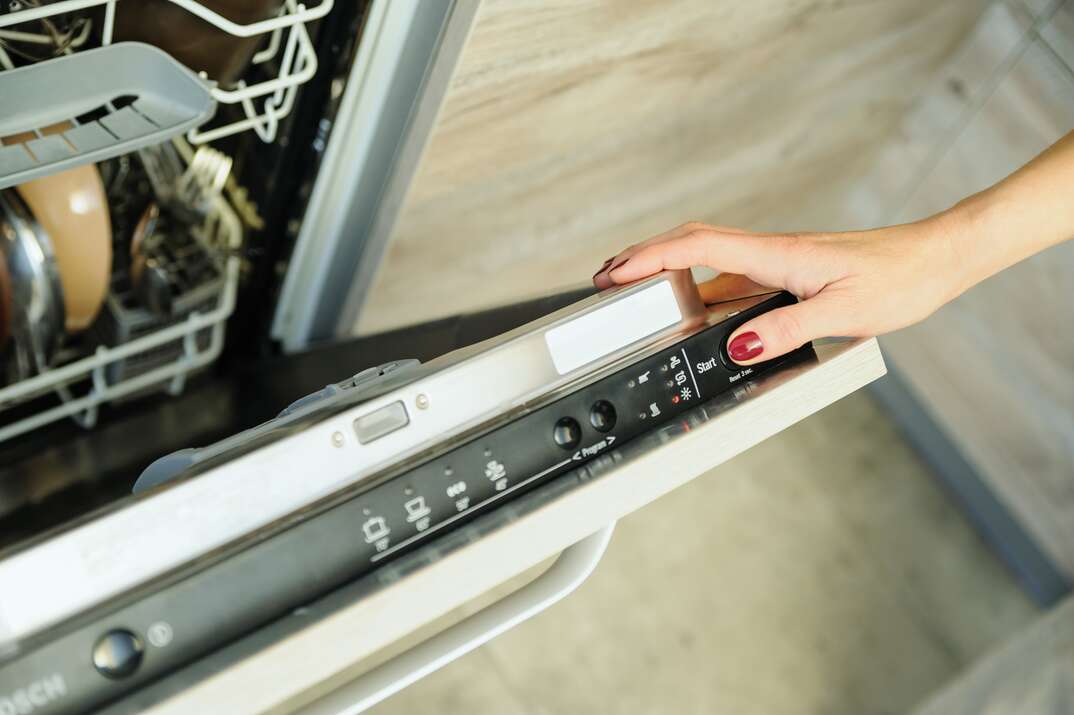- AppliancesElectriciansHVACLandscapingLocksmithPest ControlPlumbingRenovationRoofingT V RepairAll Home Improvement
- Car AccidentClass ActionCorporate LawCriminal DefenseDivorce LawEmployment LawFamily LawFinancial LawLegal AidMedical Injury LawyersMedical MalpracticeReal Estate LawWater Fire RestorationAll Legal
- InvestmentRetirementAll Finance
- Animal InsuranceAutoGeneral InsuranceHealth PolicyHome RentersAll Insurance
- DentalHealth SpecialistsAll Medical
- Animal CareVeterinaryAll Pets
- Auto GlassTowingAll Automotive
Why Is My Dishwasher So Loud?

Why Is My Dishwasher So Loud?
Read about the common causes of a loud dishwasher and when loud noises can indicate a problem. Learn solutions that may help your dishwasher run more quietly.
This article offers helpful insight on why dishwashers make loud noises and provides tips that may help reduce noise. It also provides information on when a noisy dishwasher should be checked out by a professional.
Author: Elizabeth Michael
Starting the dishwasher is often considered the most satisfying step in post-meal kitchen cleanup. That is, until this convenient appliance begins to make mysterious loud noises. While a loud dishwasher can be due to something as simple as a rogue piece of silverware that escaped the basket, it can also indicate a more serious issue that should be addressed right away. Understanding what can cause a noisy dishwasher and taking steps to schedule professional repair when necessary can make your after-dinner routine a lot easier.
Why Is My Dishwasher So Loud When It’s Running?
Most dishwashers make subtle humming noises as they run, and it's pretty normal to hear the familiar "whoosh" of water as the appliance moves through different cycles. If your dishwasher makes loud noises when it runs that differ from its normal sounds, it may need professional repair. Some common dishwasher noises include:
- Buzzing: Buzzing sounds typically occur during the final dishwashing cycles as the soapy water flows down the drain. In most cases, subtle buzzing is considered completely normal. However, excessive or loud buzzing can indicate a drainage issue.
- Grinding: Grinding sounds are typically caused by silverware or other foreign objects becoming lodged between the spray arm and the base of the dishwasher. You can usually fix this by dislodging the object by hand (with the dishwasher turned off). If the grinding continues, there may be a clog or obstruction in the drain pump.
- Squealing: If your dishwasher is new, it's fairly common to hear squealing noises during the first few washes as the machine adjusts. If the squealing is constant or accompanied by other noises, you may want to schedule service with an appliance repair technician.
- Clunking: Hearing a single "clunk" shortly after starting your dishwasher usually means the soap dispenser has opened and dropped the soap into the dishwasher. Constant clunking sounds can indicate improper loading.
- Swishing: If your dishwasher makes swishing sounds as it cycles, this means it's working as it should. As the spray arm releases water and spins around, the sound of swishing or "whooshing" water is completely normal.
Is There a Way to Make Your Dishwasher Quieter?
If you've determined that the noises coming from your loud dishwasher aren't due to damaged internal components or other issues that require repair, here are a few tips for quieter operation.
- Careful loading: When loading your dishwasher, make sure to double-check the utensil basket and spraying arm for possible blockages. When loading the top rack, be mindful of lighter items, such as plastic cups and containers, that could come loose during the wash cycle and move around the machine.
- Schedule dishwasher maintenance: Scheduling regular dishwasher maintenance is another way to ensure your appliance runs at top efficiency, which can help eliminate pesky noises caused by minor blockages and loose or worn parts.
- Anti-vibration mats or pads: Placing an anti-vibration mat or anti-vibration pads beneath your dishwasher may help soften vibrations between the floor and your dishwasher that can intensify humming and buzzing sounds.
What Dishwasher Sounds Indicate a Problem With the Machine?
Loud noises that may be a cause for concern include banging noises, louder-than-normal buzzing sounds and constant rattling. Banging or knocking noises are sometimes due to improper loading that causes an obstruction with the sprayer arm. However, if removing the blockage doesn't solve the problem, there may be a problem with the water hammer, which should be addressed right away.
Buzzing noises that sound louder than water running down the dishwasher drain can point to a potential problem with the drain hose. It may be obstructed, or your dishwasher filters might be clogged. Constant rattling can be due to several issues, including blocked spray arms or damaged pump impellers (the parts that push water through the spray arm).
Many dishwasher noises are simply part of the machine's normal operation. However, it's always best to schedule a service call with a dishwasher repair specialist if the noises are consistent or come on suddenly to help prevent irreversible damage.
Elocal Editorial Content is for educational and entertainment purposes only. Editorial Content should not be used as a substitute for advice from a licensed professional in your state reviewing your issue. Systems, equipment, issues and circumstances vary. Follow the manufacturer's safety precautions. The opinions, beliefs and viewpoints expressed by the eLocal Editorial Team and other third-party content providers do not necessarily reflect the opinions, beliefs and viewpoints of eLocal or its affiliate companies. Use of the Blog is subject to the
Website Terms and Conditions.The eLocal Editorial Team operates independently of eLocal USA's marketing and sales decisions.



